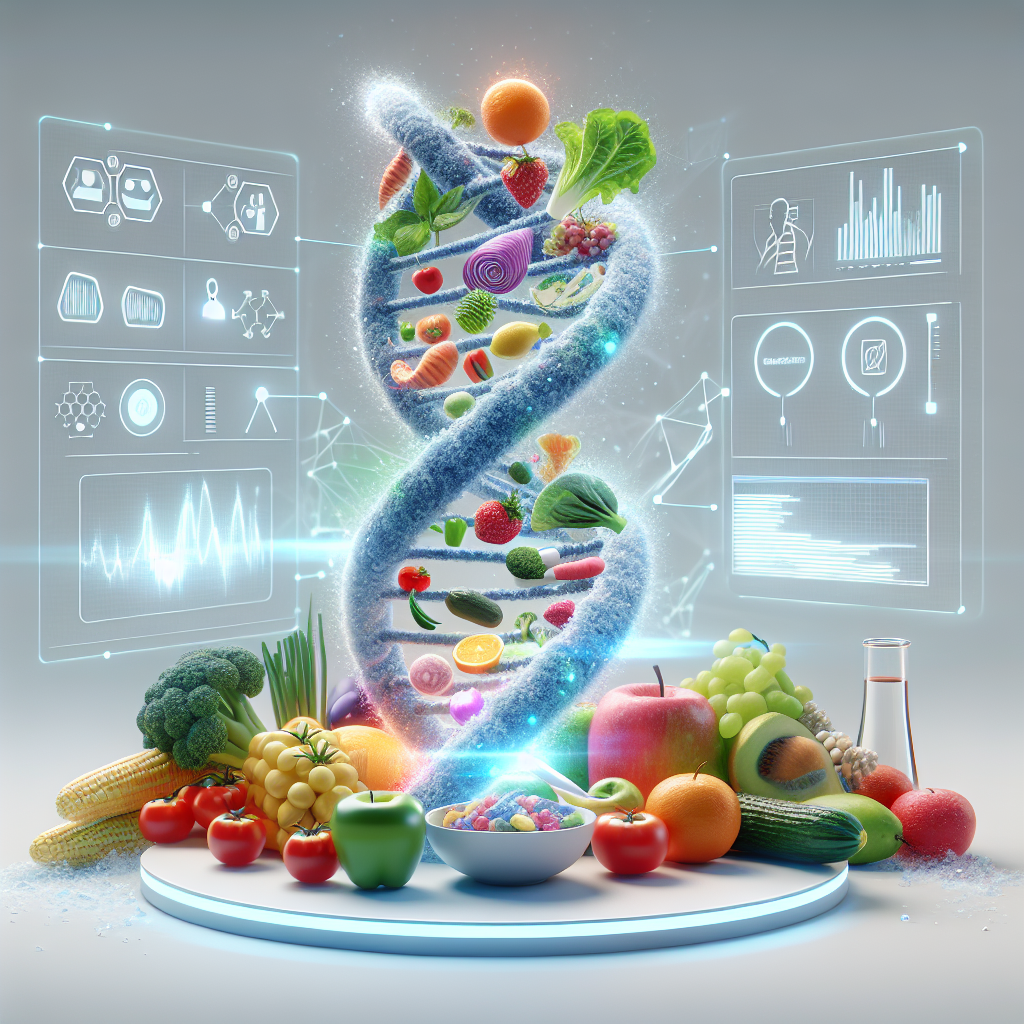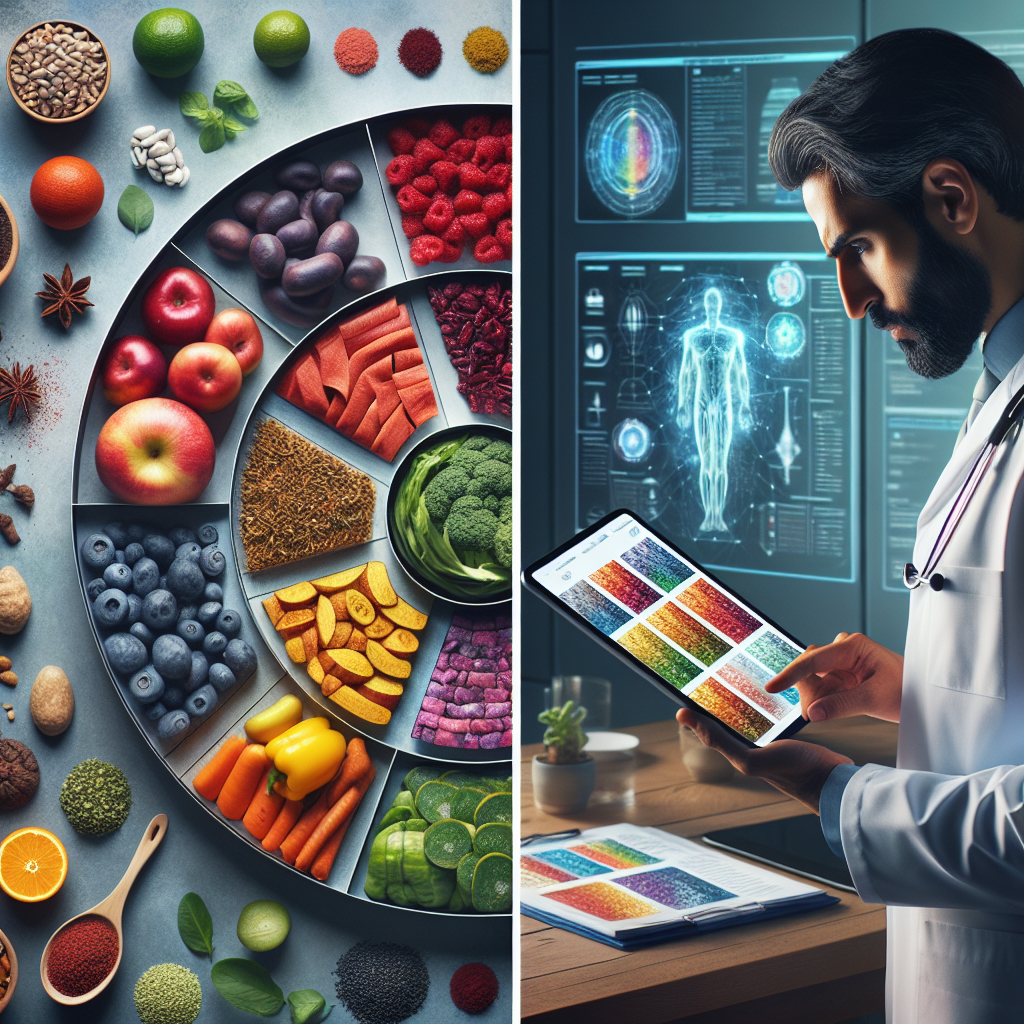Have you ever followed a diet that worked wonders for your friend but left you feeling tired and unsatisfied? Or tried the latest nutrition trend only to find yourself right back where you started? You’re not alone! The truth is, when it comes to nutrition, one size definitely doesn’t fit all.
Personalized nutrition plans are revolutionizing how we think about food and health. Unlike generic diet recommendations, these tailored approaches consider your unique body composition, lifestyle, health goals, and even genetic makeup. The concept is simple yet profound: what nourishes one person optimally might not work the same way for another.
What’s particularly exciting is how personalized nutrition plans are now incorporating the time-tested wisdom of Eastern dietary philosophies. This beautiful marriage of ancient knowledge and modern science offers a holistic approach that treats food not just as fuel, but as medicine for your specific constitution.
“Food has always been the foundation of health in Eastern traditions,” explains nutrition expert Dr. Maya Chen. “What we’re seeing now is a growing recognition that individualizing dietary recommendations based on both modern nutritional science and Eastern principles creates powerful, sustainable results.”
The rising popularity of personalized nutrition plans reflects our collective shift toward more mindful, intentional living. Health-conscious individuals are no longer satisfied with generic advice—they want nutrition guidance that honors their uniqueness and incorporates deeper wisdom about the relationship between food and wellbeing.
The Core Principles: Where East Meets West
At the heart of personalized nutrition is the understanding that our bodies have different needs based on our constitutional types, current health status, and even the changing seasons. This approach begins with comprehensive individual health assessments that might include blood work, body composition analysis, digestive health evaluation, and lifestyle factors.
Eastern dietary wisdom enhances this personalized approach through several key principles:
Balance and Harmony: Eastern nutrition philosophies emphasize the importance of balance—not just in nutrients, but in the energetic qualities of foods. In Traditional Chinese Medicine, for instance, foods are classified as heating, cooling, or neutral, and the ideal diet creates harmony based on your individual constitution and current imbalances.
Seasonal Eating: Eastern traditions place great importance on eating in accordance with nature’s cycles. “Consuming seasonal foods helps align your body with the energy of the current season,” notes holistic nutritionist Sarah Lin. “Winter calls for more warming, grounding foods, while summer benefits from cooling, hydrating choices.”
The Five Elements Theory: This foundational concept in Eastern medicine connects different foods to specific organ systems and elements (wood, fire, earth, metal, water). A personalized nutrition plan inspired by Eastern wisdom might recommend specific foods to strengthen your kidneys or nourish your blood, depending on your unique needs.
Mindful Eating Practices: Eastern approaches to nutrition extend beyond what you eat to how you eat. Mindful eating—paying full attention to the experience of eating without judgment—enhances digestion and satisfaction. This practice alone can transform your relationship with food.
The beauty of integrating these Eastern principles into personalized nutrition plans is that they complement modern nutritional science perfectly. While Western nutrition focuses on macronutrients, micronutrients, and calories, Eastern wisdom adds another dimension by considering how foods affect your energy, balance internal systems, and support seasonal transitions.
“When we combine the analytical precision of modern nutritional science with the holistic perspective of Eastern dietary wisdom, we create nutrition plans that address both the physical body and its energetic needs,” explains Dr. Chen. “This integration offers a more complete approach to health and wellbeing.”
Practical Tips for Your Personalized Nutrition Journey
Ready to explore how personalized nutrition plans with Eastern wisdom can transform your health? Here are practical strategies to get started:
1. Begin with Self-Assessment
Before overhauling your diet, take time to observe how different foods affect your energy, mood, and digestion. Keep a food journal for two weeks, noting not just what you eat but how you feel afterward. This simple practice, rooted in Eastern mindfulness, provides valuable insights into your body’s unique responses.
Traditional Eastern medicine suggests paying attention to signs like these:
- Do you feel cold frequently? You might benefit from more warming foods.
- Experience afternoon energy crashes? Your meals might need better balance.
- Have digestive discomfort after certain foods? Your body may be signaling an imbalance.
2. Embrace Seasonal Eating
One of the easiest ways to incorporate Eastern dietary wisdom is to align your meals with the seasons. Visit local farmers’ markets and choose produce that’s naturally available in your area during the current season. Seasonal eating is a cornerstone of traditional wellness practices.
Spring calls for fresh, leafy greens and sprouted foods that support the liver’s natural detoxification processes. Summer is perfect for cooling foods like cucumber, watermelon, and lightly cooked meals. Fall transitions to more grounding root vegetables and warming spices, while winter benefits from slow-cooked soups, stews, and nourishing broths.
“Seasonal eating isn’t just nutritionally sound—it’s economical and environmentally friendly,” says sustainable food advocate Michael Wong. “Plus, foods eaten in season simply taste better!”
3. Incorporate Traditional Cooking Techniques
Eastern culinary traditions offer wonderful methods for preparing foods that enhance both flavor and nutritional value. As explored in traditional cooking approaches:
- Try fermenting vegetables for probiotic benefits
- Master the art of gentle steaming to preserve nutrients
- Explore stir-frying with small amounts of high-quality oils
- Experiment with healing broths and stocks as meal bases
These cooking techniques can transform ordinary ingredients into therapeutic meals tailored to your constitution and current health needs.
4. Build Your Spice Pharmacy
Herbs and spices are central to Eastern cooking not just for flavor but for their medicinal properties. A personalized nutrition plan with Eastern influence might recommend specific spices to support your unique constitution:
- Warming spices like ginger, cinnamon, and black pepper for those who feel cold
- Cooling herbs like mint, cilantro, and chrysanthemum for those who run hot
- Digestive spices like fennel, cardamom, and cumin to enhance nutrient absorption
“Spices are some of the most powerful medicines in your kitchen,” explains herbalist Jin Park. “Learning which ones support your specific body type can dramatically improve how you feel after eating.”
5. Connect with Community Resources
Deepen your understanding by engaging with community events focused on Eastern nutrition:
- Attend cooking demonstrations at local Asian markets
- Join macrobiotic or Ayurvedic cooking classes
- Participate in tea ceremonies to learn about medicinal teas
- Consult with practitioners trained in Eastern nutritional approaches
Many communities now offer workshops that bridge traditional Eastern dietary wisdom with modern nutritional science, providing valuable hands-on experience.
The Transformative Potential of Personalized Nutrition
When people adopt personalized nutrition plans that incorporate Eastern dietary wisdom, the results can be remarkable. Research increasingly supports what traditional cultures have known for centuries: tailoring nutrition to individual needs leads to better outcomes.
A 2022 study published in the Journal of Personalized Medicine found that participants following personalized nutrition recommendations showed significantly greater improvements in metabolic health markers compared to those following standard dietary guidelines. What’s particularly interesting is that the most successful plans incorporated elements of traditional dietary wisdom alongside modern nutritional science.
The behavioral changes often extend beyond just what’s on your plate. Many people report:
- Improved awareness of hunger and fullness cues
- Greater appreciation for meal preparation as a mindful practice
- Better understanding of how food affects their unique body
- Reduced cravings and emotional eating
- More sustainable eating patterns that don’t feel restrictive
Sarah Thompson, who integrated personalized nutrition with Eastern principles to address her digestive issues, shares: “For years, I followed generic ‘healthy eating’ advice without success. When I started working with a nutritionist who incorporated Eastern dietary wisdom, everything changed. We discovered that my body needs warming foods and specific spices to support digestion. My symptoms improved within weeks, and I finally have a sustainable approach to eating that feels right for my body.”
The evidence supporting this integrated approach continues to grow. Research shows that personalized nutrition plans lead to better adherence rates compared to generic diets, largely because they honor individual preferences and needs. When these plans also incorporate the wisdom of Eastern dietary traditions, they address not just physical health but emotional and energetic wellbeing too.
The Future of Nutrition: Ancient Wisdom Meets Modern Technology
As we look toward the future of nutrition, the integration of Eastern dietary wisdom with personalized nutrition plans represents an exciting frontier. This approach recognizes that true health comes not from following the latest trend but from understanding your unique needs and honoring ancient wisdom that has stood the test of time.
HerbalsZen’s EASTCHI AI exemplifies this powerful integration. By combining the 2,000-year-old wisdom of Eastern medicine with cutting-edge artificial intelligence, EASTCHI AI creates truly personalized nutrition plans that honor your individual constitution.
The system analyzes your unique profile through the lens of Five Element Theory, providing dietary recommendations that change with the seasons and embrace the Eastern concept of food as medicine. This isn’t just about eating healthy—it’s about eating right for your specific body type and current health status.
“What makes this approach so powerful is that it doesn’t discard either tradition or technology,” explains nutritional researcher Dr. James Lee. “Instead, it brings them together, allowing ancient wisdom to inform modern practices and modern science to validate traditional approaches.”
In a world of one-size-fits-all diet plans, personalized nutrition guided by Eastern wisdom offers a refreshing alternative—one that sees you as a whole person with unique needs rather than just another dieter. By embracing this integrated approach, you’re not just changing what you eat; you’re transforming your relationship with food into one that nourishes your body, mind, and spirit.
Are you ready to discover how personalized nutrition plans with Eastern wisdom can transform your health? The journey begins with a single step: honoring your uniqueness and embracing the ancient knowledge that food truly is your best medicine—especially when it’s tailored just for you.




